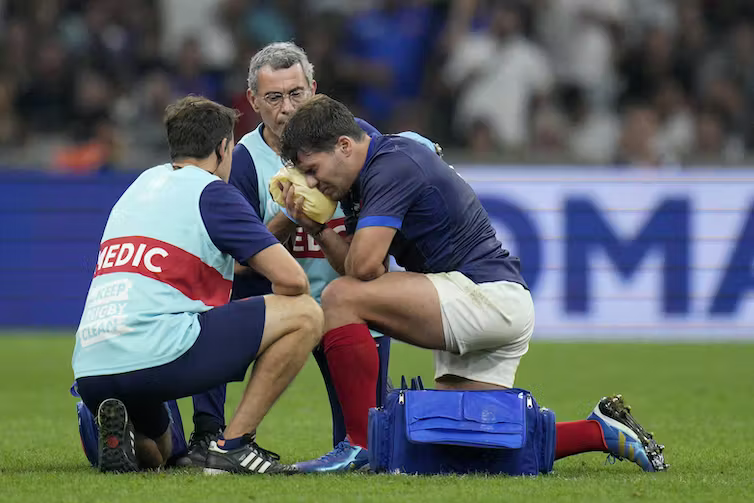Mondelez / Oct 2023 / In-Image AI-Ads
In the 46th minute of the 2023 Rugby World Cup (RWC) pool match between contenders France and pretenders Namibia, with the rampaging Europeans ahead by a thumping 54 points to nil, the wilting Welwitschias forfeited a player to a yellow card.
Within eight minutes, the card had bled to red. The mismatch worsened. Close to the final whistle, with France now up 96-0, the Namibian desert turned yellower still. Now 15 cats chased 13 mice for the dying embers of a farce.
What’s the point?
As a legal specialist in conflict resolution and mediation, I argue there has to be a better way. Rugby rules are rightly known as the “laws” of the game, and they are essentially designed to resolve the conflicts inherent in a physical contest over an oval ball. There is substantial crossover with systems for conflict resolution in other areas of life and work.
Wayne Barnes, who will referee the RWC final between New Zealand and South Africa this weekend, is also a barrister by trade. As such, he will know where the onus should lie when critical decisions need to be taken in a trial between two elite teams.
Unfair and unsafe
To be a riveting spectacle, the power sport of rugby must be as safe and fair as possible for each of a match’s 80 minutes. That means 15 playing 15 at all times. The spectacle is lost whenever there is a mismatch in numbers.
In a collision contest, 14 against 15 hurts the game; 13 against 15 is unwatchable – and dangerous.
As one would expect, it is generally the weaker of the two teams, already struggling to put up a defence, that concedes penalties and haemorrhages players. A valiant team can hold out against greater numbers, but only exceptionally.
